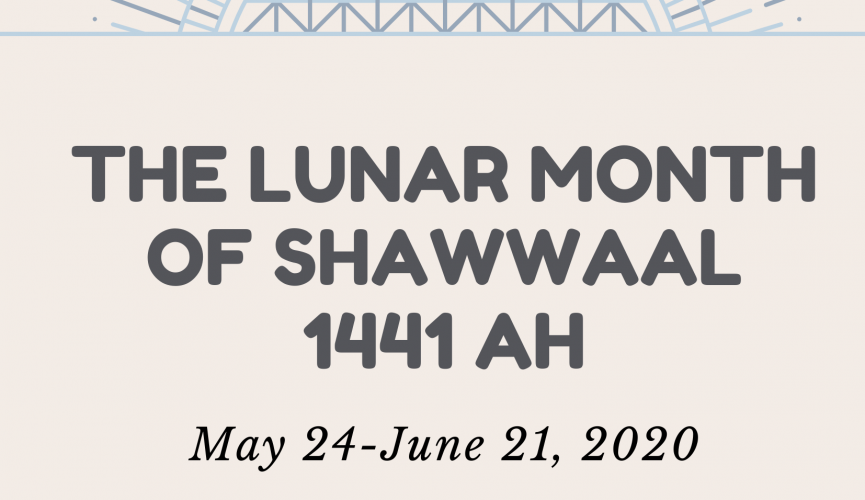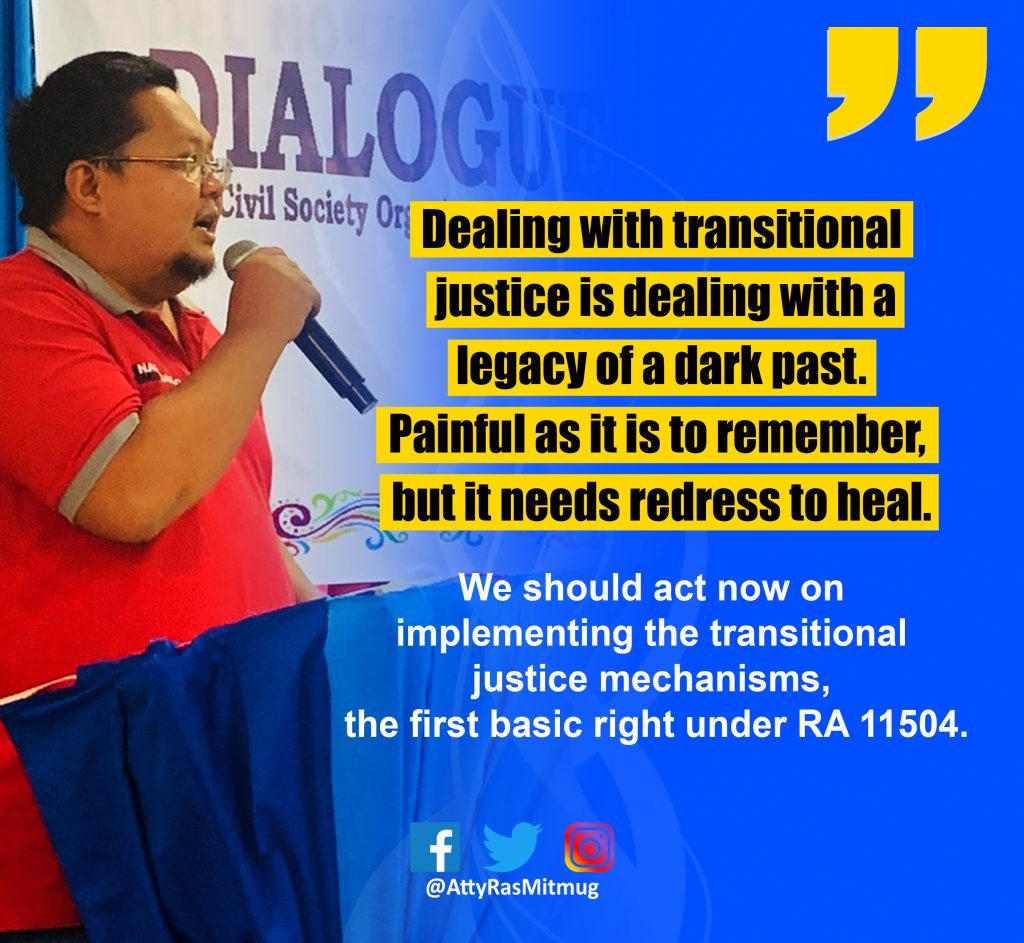by Abdulwarith Dimasangcop
During pre-Islamic times the lunar month of Shawwāl was regarded as a cursed month and a month of ill-omen. Some people of that time even avoided getting married during the month of Shawwāl because they believed that marriages during this month would not be blessed. As with most of the negative and pessimistic aspects of pre-Islamic society the Divine message of Islam came to change these wrongheaded beliefs and negative perceptions of human existence, including that of the month of Shawwāl. Islam transformed these superstitious ideas and beliefs into positive life-affirming philosophies.
In this article, we would like to reflect on the positive significance of the lunar month of Shawwal and provide at least four (4) ways in which this month is important for Muslims.
First, in order to signify the incorrectness of the pre-Islamic belief that marriages contracted in the month of Shawwāl was cursed, the Prophet Muhammad (ﷺ) chose to marry ‘Āishah (Radhiyallāhu ‘anha) during the month of Shawwāl. The wrong belief of the pre-Islamic people that Shawwāl was a cursed month of ill-omen was clearly disproved by this marriage since the Prophet Muhammad’s (ﷺ) marriage to ‘Āishah (Radhiyallāhu ‘anha) became a great beacon of love and affection for all married couples to emulate.
Second, one of the most meritorious aspects of Shawwāl is that `Id-al-Fitr is celebrated on the first day of the month. This joyous and festive day, celebrated by the Muslim ummah, is a day on which we give thanks to ALLĀH, and celebrate our accomplishments of the blessed month of Ramadhān. As ALLĀH, the Sublime exhorts us in the Glorious Qur’an, in Sūrah al-Baqarah, Chapter 2, verse 185: He (ALLĀH) desires that you complete the prescribed number of fasting days And that you extol and glorify ALLĀH for having guided you, That perhaps you may render thanks and gratitude unto Him.
Third, the month of Shawwāl is also significant because it marks the onset of the hajj season. ALLĀH, the Sublime, declares in the Glorious Qur’an in Sūrah al-Baqarah, Chapter 2, verse 197: The Hajj/Pilgrimage shall take place during the well-known months
In a prophetic tradition (hadīth) recorded in the authentic collection of Imām Al-Bukhārī, the companion `Abdullah ibn `Umar (Radhiyallāhu ‘anhu), informs us that the Prophet Muhammad (ﷺ) declared that the well-known months referred to in this Qur’anic verse (āyah) are the lunar months of Shawwāl, Dhul Qa’dah and the first ten days of Dhul Hijjah.
These three lunar months were well-known to the pre-Islamic Arabs as the months during which the hajj took place. This was known since the days of Prophets Ibrahim and Isma’il (peace be upon both of them) and the Glorious Qur’an reaffirms their significance. The month of Shawwāl is thus the first of the three months named as “Ash-hur al-Hajj” (the months of hajj).
Fourth, the month of Shawwāl is the only other month in the Muslim calendar in which fasting is recommended. According to a well-known prophetic tradition (hadīth) recorded in the collection of Imām Muslim, related by the companion, Abū Ayyūb al-Ansārī (Radhiyallāhu ‘anhu) the Prophet Muhammad (ﷺ) advises us as follows: “Whosoever fasts during the month of Ramadhān and then follows it up with six days of fasting of Shawwāl will be rewarded as if he or she had fasted the entire year.”
(Narrated by Imām Muslim)
In his explanation (sharh) of the meaning of the above hadīth the famous thirteenth century hadith expert Imām al-Nawawî (d.1277) observes: Scholars have explained that it is like observing a year of fasting because the reward of one’s good deeds are multiplied tenfold. Therefore fasting the month of Ramadhān is like fasting for ten months and fasting six days in the month of Shawwāl is like fasting for two months. The above interpretation is based on a corollary hadith related from Thawbân that Rasūlullāh ﷺ said: “The fast of Ramadhān is like observing ten months of fasting. Fasting six days of Shawwâl is like observing two months of fasting. This together is like fasting throughout the year.”
(Sahîh Ibn Khuzaymah (2115) and Sunan al-Nasâ’î al-Kubrâ (2860)
According to the Shāfi’ī and Hanafi schools of Islamic jurisprudence (madh-habs) it is preferred that these days be fasted consecutively, i.e. the six days immediately following the celebration of ‘Id-al-Fitr.
According to Imām Ahmad ibn Hanbal however one may choose to fast on any six days of the blessed month of Shawwāl, as neither practice is preferred over the other. This is also the prevailing view (jamhur) of many contemporary Muslim scholars on the basis of the evidence.
There are also a minority of scholars who hold the view that the sunnah fasting days of the month of Shawwāl should all be postponed until later in the month and not close to the day of `Id, which is a time of celebration and feasting. They prefer fasting the three days in the middle of the month (ayyâm al-bîd) along with the three days right before or after. This is the opinion of Ma`mar and `Abd al-Razzâq.
There is considerable flexibility in all of this and we can choose to follow any of these approaches. I encourage those of us who have not already adopted this prophetic recommendation (sunnah) to consider doing so in the remaining days of this month of Shawwāl. Fasting in the lunar month of Shawwāl provides us with a wonderful opportunity to follow up on our great spiritual accomplishments of the month of Ramadhān and it cultivates in us the discipline of voluntary fasting (siyam al-tatawwu’).
As we have experienced during the month of Ramadhān, fasting is one of the best forms of worship and spiritual disciplines, which purifies the individual, nourishes our souls and draws us closer to our Creator. Voluntary fasting (siyam al-tatawwu’) has an even greater effect since it is undertaken by the free will of the believer. This is why the Prophet Muhammad (ﷺ) loved fasting so much.
Furthermore, it is our considered view that the practice of fasting in Shawwāl could also serve as a wonderful way of assisting those who may have missed some fasts during Ramadhān, as a result of illness, menses or traveling, to make up for their lost days.
It is highly recommended to fulfill the qadhā’ or missed fasts of Ramadhān as soon as possible, since this is an obligation and debt owed to ALLĀH and this takes precedence over voluntary (sunnah) fasting.
It is no wonder that one of the Prophet’s wives, Umm Salamah (Radhiyallāhu ‘anha) recommended to members of her family that they fulfil the qadhā’ or missed fasts during the month of Shawwāl. It is therefore praiseworthy to do the qadhā’ fast during the month of Shawwāl.
By encouraging the entire family to fast in solidarity with women and others who may have qadhā’ fasts to make up, it would be a wonderful gesture so that such family members do not feel alone in making up their lost days. Moreover such a gesture would surely help in strengthening our family bonds.
In conclusion, since the month of Shawwāl is the start of the hajj season, it is also a time during which we bid farewell to our relatives and friends who have decided to respond to the invitation to undertake the sacred journey of the pilgrimage (hajj). Our thoughts and prayers are with them at this time.
We pray and make du’a that ALLĀH, the Hearer and Acceptor of all sincere supplications and grant the pilgrims (hujjāj) a safe journey.
And ALLĀH S.W.T. knows best…






